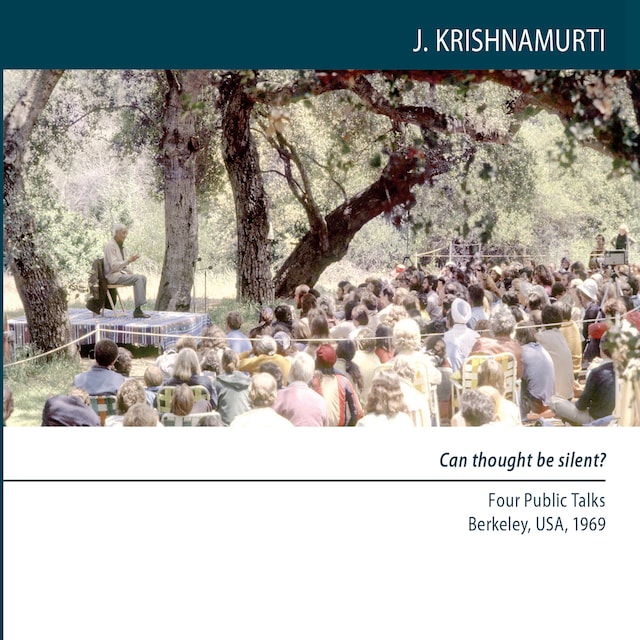
Can Thought Be Silent?
Four Public Talks - Berkeley USA 1969
Om bogen
1. Can the mind be free? - 3 February 1969 Duration: 99 minutes • The society in which we live is the result of our psychological state. • Where there is fear there is aggression. • For most of us, freedom is something that we don't want. • Inaction is total action. • What is the machinery that builds images? Questions from the audience followed the talk. 2. Thought sustains fear and pleasure - 4 February 1969 Duration: 67 minutes • To understand relationship and to end the conflict in it is our entire problem. • Can man live at peace, within himself and outwardly? • In relationship one becomes aware of the actual state of oneself. • The man that has no sense of fear of any kind is really a free man, a peaceful man. • What is fear? • Can thought be silent? • Conduct becomes virtuous only when thought doesn't cultivate what it considers virtue. • How is it possible to look at the sunset without thought weaving pleasure or pain around it? Questions from the audience followed the talk. 3. Life, death and love - 5 February 1969 Duration: 69 minutes • What is it that we call living? • How can a confused mind find somebody who will tell the truth? • When there is no comparison, no opposite, you are actually faced with the fact of anger, then is there anger? • Without knowing what sorrow is, understanding its nature and structure, we shall not know what love is. • What is it to die? • One is never afraid of the unknown; one is afraid of the known coming to an end. • It is only the mind that has shed all its burdens every day, ended every problem, that is an innocent mind. Then life has a different meaning altogether. Then one can find out what love is. 4. True revolution - 6 February 1969 J. KRISHNAMURTI Duration: 67 minutes • What is a religious mind? • Must one go to an expert to tell us what the unconscious is or can one find it for oneself? • Through the negation of disorder, order comes into being. • It is only the meditative mind that can find out, not the curious mind or the mind that is everlastingly searching. • To meditate implies to see very clearly. It is not possible to see clearly when there is space between the observer and the thing observed. • It is only in silence that there is quite a different dimension.


